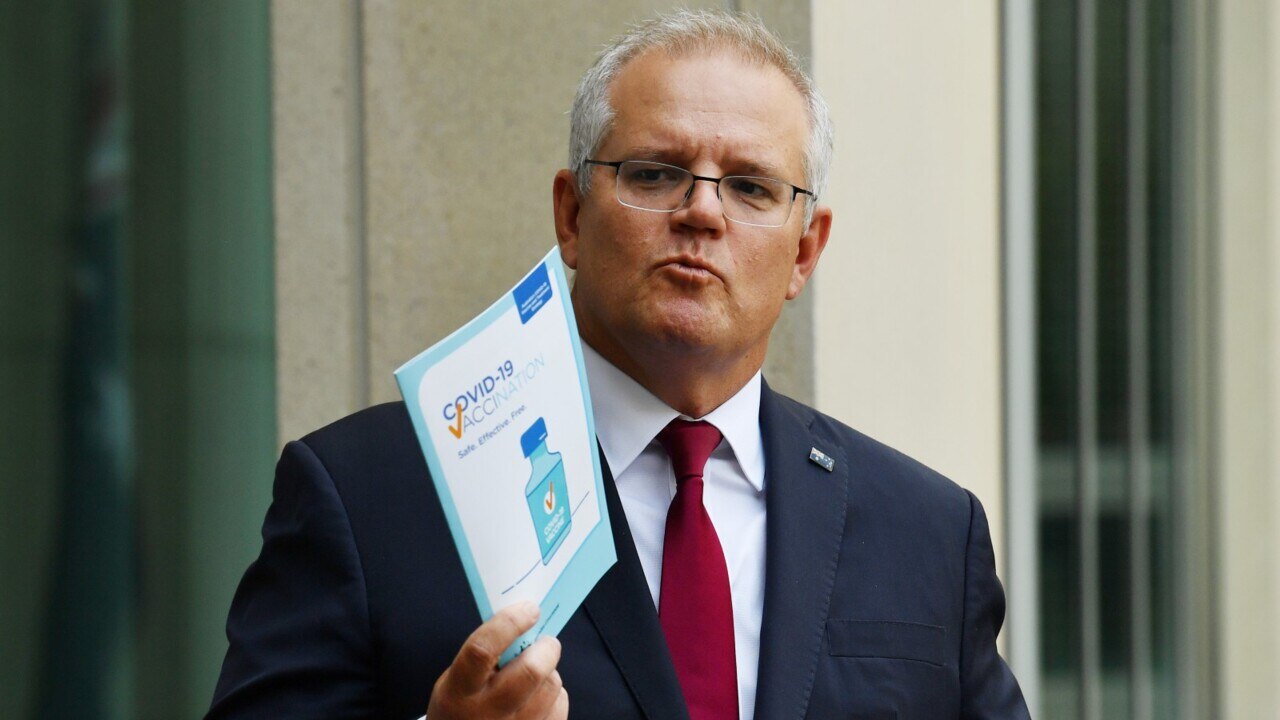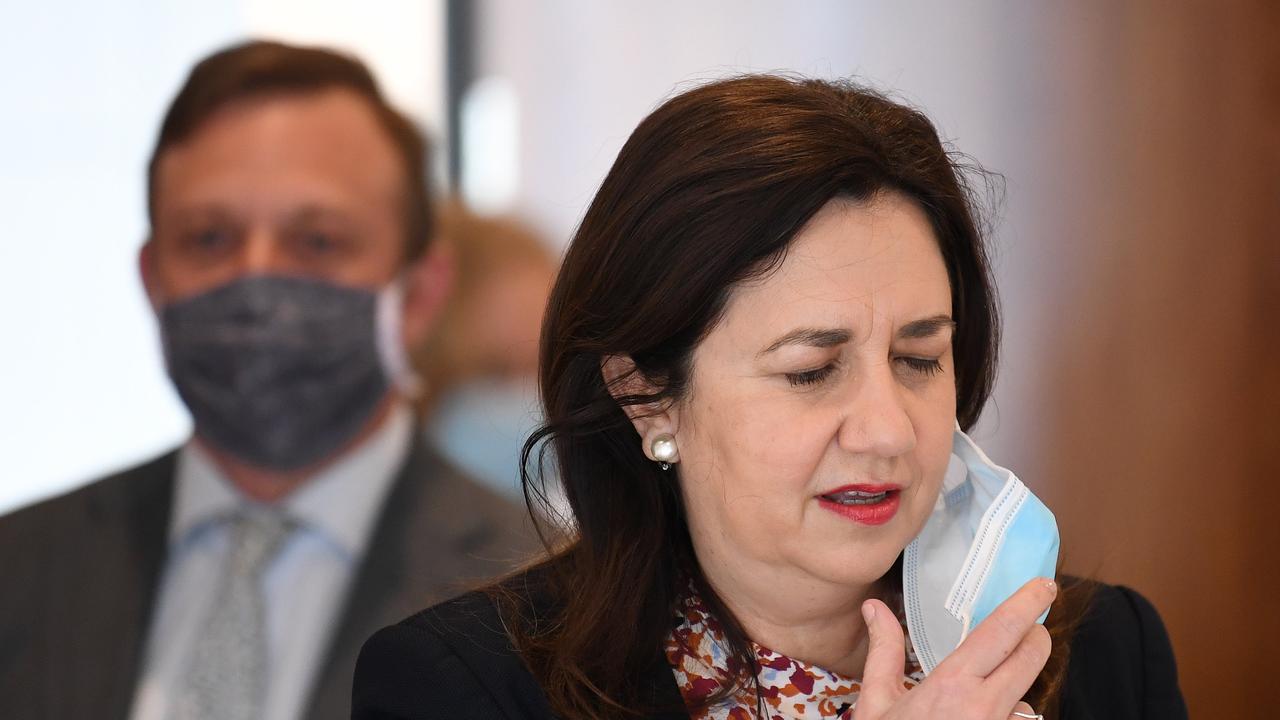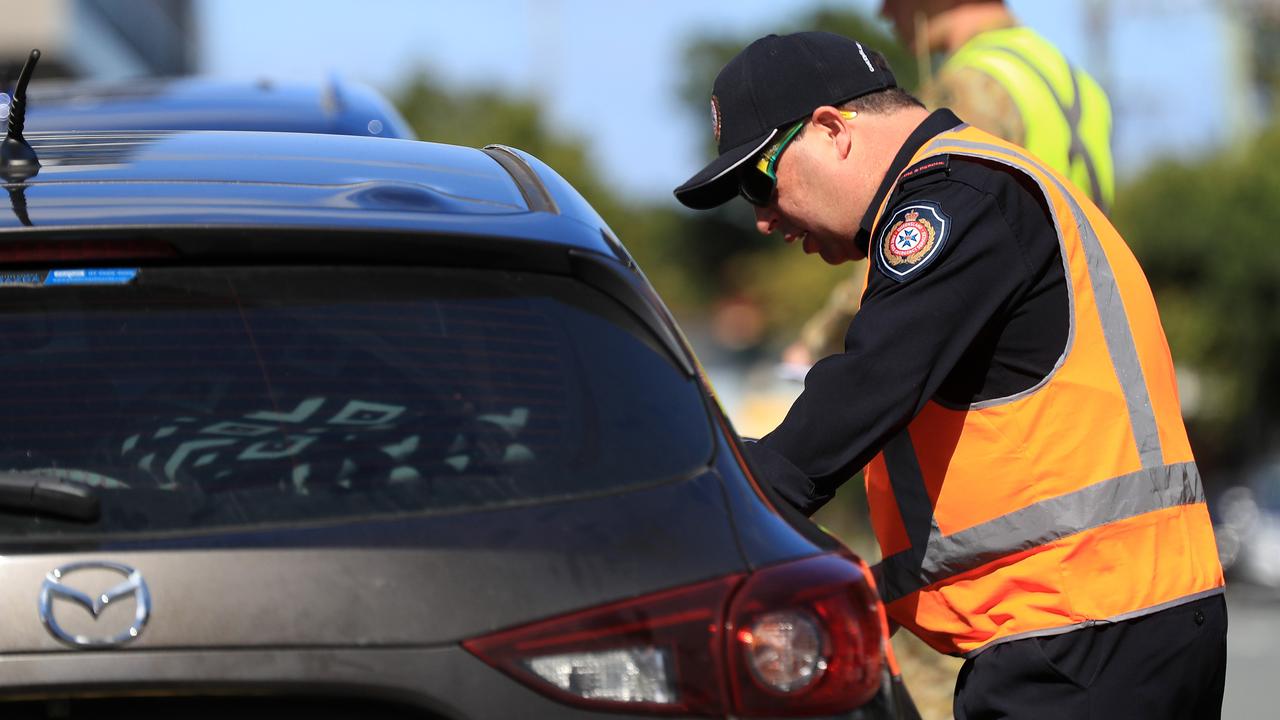Editorial: Botched vaccine rollout spoils early pandemic success
Our State and Federal governments have both had a role to play in our less-than-successful vaccine rollout, writes the editor.

QLD Coronavirus News
Don't miss out on the headlines from QLD Coronavirus News. Followed categories will be added to My News.
Australians have been told the key to life returning to normal is to get the jab, and there are almost 140,000 Queenslanders willing to get the Pfizer vaccine right now, but have been told they can’t.
It was revealed yesterday that if you haven’t already made a booking to get Pfizer, the preferred jab for under-60s, you are probably looking at October or November before you can get it. That’s when the State Government expects larger supplies of the vaccine from the Federal Government.
All this does is keep pushing Australia’s timeline to Covid-normal further down the track.
On Friday, Prime Minister Scott Morrison announced a four-phase plan that he said would be the country’s ticket out of constant coronavirus lockdowns and upheaval.
The catch is Australians need to come together and get the vaccine.
We all need to do our part, which is fair enough, but we can’t if there’s no vaccine.
According to the State Government, 139,875 Queenslanders have now registered to get the Pfizer vaccine, but they have been told they can’t get it now and shouldn’t expect to get a booking until October or November.
Our State and Federal governments have both had a role to play in our less-than-successful vaccine rollout.
Queensland has had outbreaks because frontline health workers were not vaccinated.
The Federal Government has not done a good enough job at rolling out the vaccine in aged-care centres, and now there is the looming Pfizer supply issue.
Yes, the Government backed the wrong horse in AstraZeneca. And it was unlucky that the University of Queensland vaccine never got off the ground, despite promising early results.
But it’s not the only government around the world that would have done things differently during the pandemic if given half a chance.
Italy probably would have locked down earlier. So too would the US.
UK Prime Minister Boris Johnson likely wouldn’t have spruiked the virtues of herd immunity, only to spectacularly backflip when the horse had already bolted.
Australia locked down early and enforced hard border closures, which gave us the luxury of not
fast-tracking the vaccine approval process and starting the rollout later to boost confidence in the science.
That is one of the reasons we are behind countries such as the US, which produces the Pfizer vaccine and was ravaged by Covid-19, so started getting jabs into arms as soon as it could. Many Australians who are already vaccinated have had AstraZeneca, and the 12-week wait between doses also affects our vaccination statistics.
Australia certainly could be doing better, but there’s other developed nations in the same boat.
About 7 per cent of Australians are fully vaccinated, and about a quarter of Australians have received at least one jab.
In comparison, in New Zealand about 14 per cent of the population has received at least one jab and just over 9 per cent are fully vaccinated.
NSW Health Minister Brad Hazzard put it perfectly yesterday when he said: “It is almost a sense now of the Hunger Games, of people chasing the vaccine.”
It is often a case of who wants it badly enough – and how far are they willing to go to get it.
Some people under 40 have been vaccinated with Pfizer in Queensland by walking into a centre without a booking, or some have been lucky enough to register and get an appointment before demand went through the roof on the back of the latest outbreak.
But in regional Queensland, there are still people over 60 patiently waiting for their AstraZeneca shot.
It’s been haphazard at best, and there’s often no rhyme nor reason as to why one person is vaccinated and the other is not.
Chris Maher, the Aussie vaccine expert who led the worldwide effort to eradicate polio, has pointed out the obvious – we need to make it easier for people to get vaccinated.
“The main reason why people don’t get vaccinated, one of my old bosses used to say to me, is because they don’t have the opportunity,” he said.
“So the first thing is you have to give the opportunity to people.”
Everything should be on the table – 24-hour clinics, vaccine hubs, pharmacy jabs – all of it.
Today’s so-called “war gaming” of the vaccine rollout between state and territory leaders can’t come soon enough.
Because if we don’t get this right soon, we’re in danger of losing ground in the war against Covid-19.





